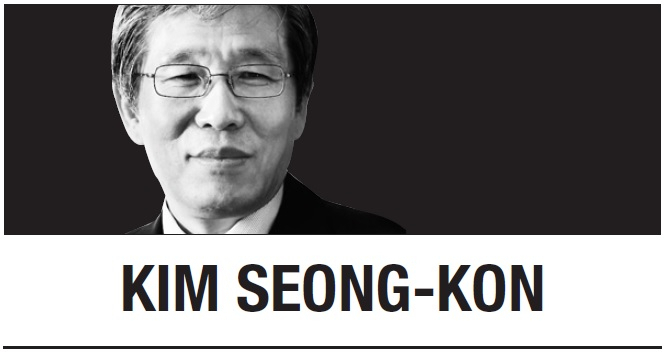
A video on South Korea uploaded by a famed American author, Mark Manson, has become the talk of the town lately. In the video, “I traveled to the most depressed country in the world,” Manson poses a question: “How come a dynamic, vibrant country influencing the world with advanced technology, K-pop and K-drama suffers the world’s highest rate of suicide, alcoholism, anxiety and depression?”
In his intriguing video, Manson argues that Korea’s unique blend of Confucianism and capitalism is largely responsible for the incredibly high rates of mental illness that have plagued the country. The Korean education system, too, has a large share of the blame for these social maladies because it fosters an “all or nothing” mentality in a highly competitive atmosphere. Indeed, the Korean education system spreads this “either/or” attitude, though inadvertently.
Foreigners’ observations are always fascinating and enlightening, because as an outsider they can see what an insider may not. As an insider, I can only add a few things that may make Manson’s insightful perceptions more persuasive and solid. For example, it is true that formalism and materialism are rampant in Korea, and these two negative attributes surely stem from Confucianism and capitalism.
However, although South Korea is definitely a capitalist country, it is no longer really a “Confucian society,” per se. Indeed, one can hardly find traditional Confucian virtues in Korean society, such as moderation, virtuousness or respect for one’s elders. Besides, no Koreans seem to be interested in Confucianism or to read Confucian books these days. The Korean people are just living off the vestiges of obsolete Confucianism from the ancient Joseon era. But such nostalgia does not amount to the dominant influence of a cultural tradition.
We may think that Confucian “shame culture” has something to do with anxiety, depression, alcoholism and suicide in Korea. Strictly speaking, however, it is not so much “shame” as “losing face,” the inferiority complex called "yeolpok," which describes the despair and aggression that comes from comparing oneself to others, that drives the Korean people to such social maladies.
Koreans tend to compare themselves to others who are better than they are, and this consequently causes them to become depressed and frustrated. Strong pressures and excessive expectations from one’s family or community are another reason for Koreans’ anxiety and depression. In the eyes of many Koreans, therefore, “how others see me” is more important than “how I see myself.”
“Getting drunk” in Korea, too, is different from the Western concept of alcoholism. Traditionally, Koreans like drinking, but not just occasional drinking -- drinking until they pass out. As a result, there may be many alcoholics in Korean society in Western eyes. Yet, alcoholism is not so much a social problem in Korea because Koreans do not attach the same stigma to getting drunk. Besides, Koreans enjoy drinking, even when they are not depressed or frustrated. Under the influence of alcohol, Koreans enjoy chatting, singing and dancing.
Therefore, singing and dancing have long been a national pastime in Korea, together with drinking. Indeed, the Korean people have an extraordinary rhythmic sense of singing and dancing. Surely, that uniquely Korean DNA has contributed to the birth and the accomplishment of K-pop today. In addition to a spirit of competition and early training, therefore, Koreans’ love of singing and dancing is surely a crucial factor in the success of K-pop.
The Korean people like to “play” as well. When we do not work, we “play,” not “rest.” That is why we call holidays and weekends “days for play,” not “days for rest.” Traditionally, Koreans like to gather to play or watch a game together. As for computer games, Koreans prefer internet games that connect them to other online players rather than solitary video games. Such characteristics of the Korean people explain why they have been known to excel at computer games and why there are so many PC gaming cafes in Korea.
As Manson rightly points out, Korean society is full of contradictions. It is a group-oriented society, and yet people are lonely, anxious and depressed. It also looks like a Confucian society, and yet people choose “financial affluence” as the key to happiness. Koreans are also likely to choose being “good looking” as another prerequisite to happiness. South Korea is famous for cosmetic surgeries and top beauty products. Koreans’ obsession with physical appearance often embarrasses foreigners. Even in a TV talk show in the above video, someone refers to others’ physical appearance in public. That is very inappropriate and uncomfortable. It is a taboo in all other countries.
It is embarrassing and even lamentable that noble causes for happiness are missing in our society. The rapid industrialization of South Korea must have caused dehumanization. As Manson believes, however, South Korea’s unique “resilience” will surely enable us to overcome our social maladies and bring back humanity to our society.
Kim Seong-kon
Kim Seong-kon is a professor emeritus of English at Seoul National University and a visiting scholar at Dartmouth College. -- Ed.







